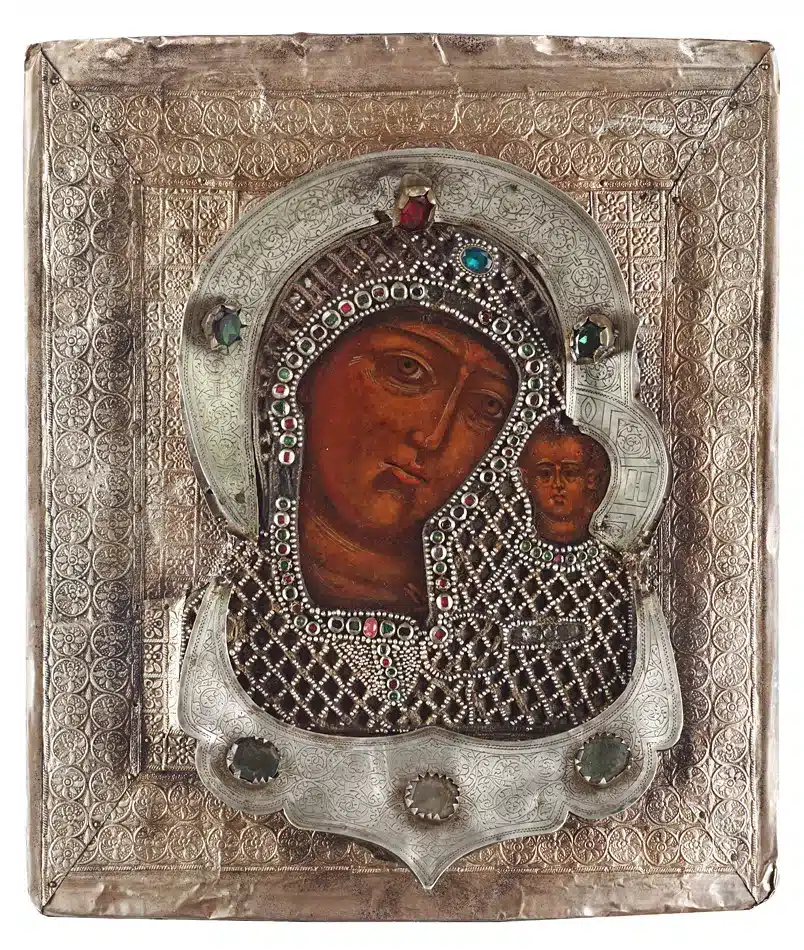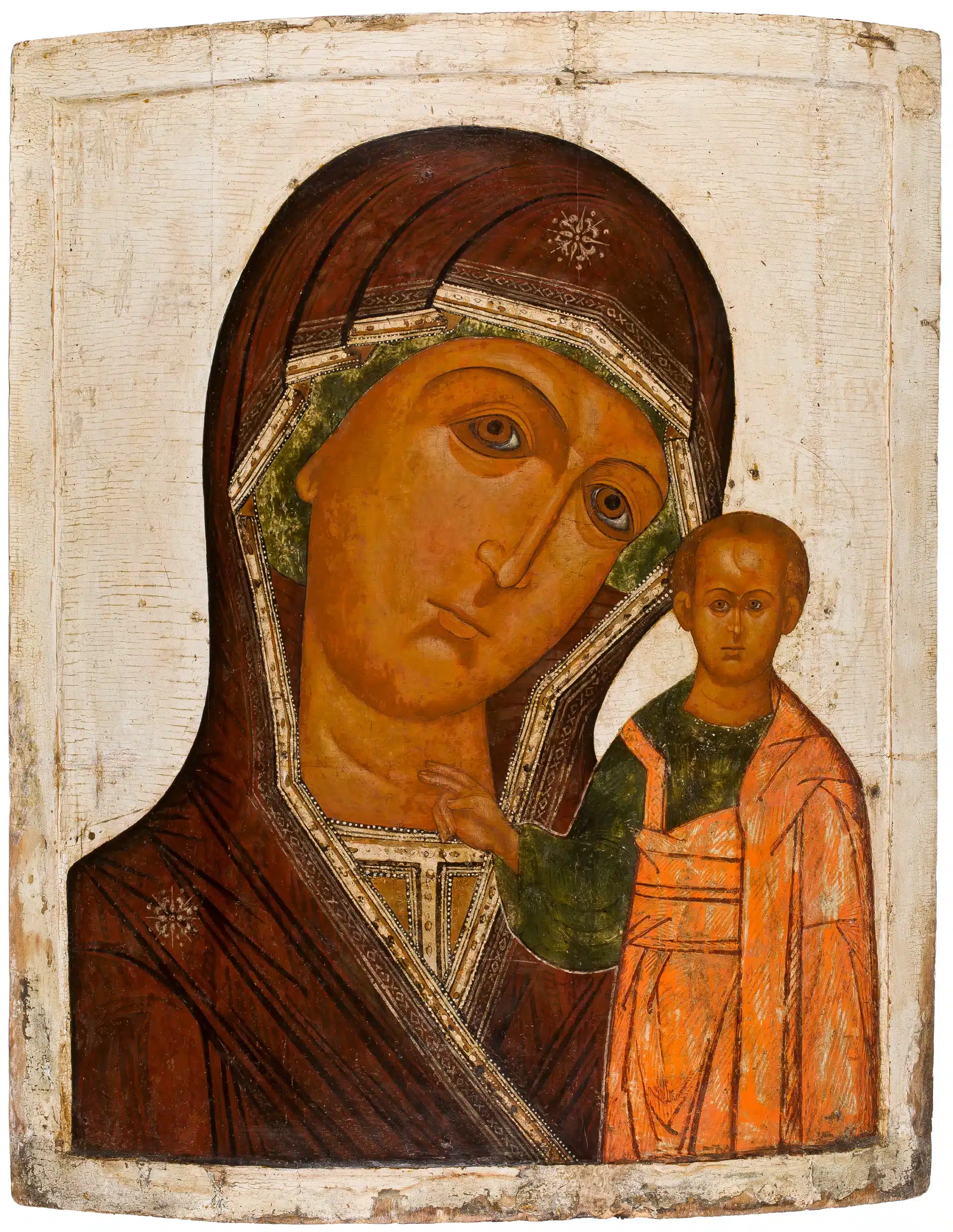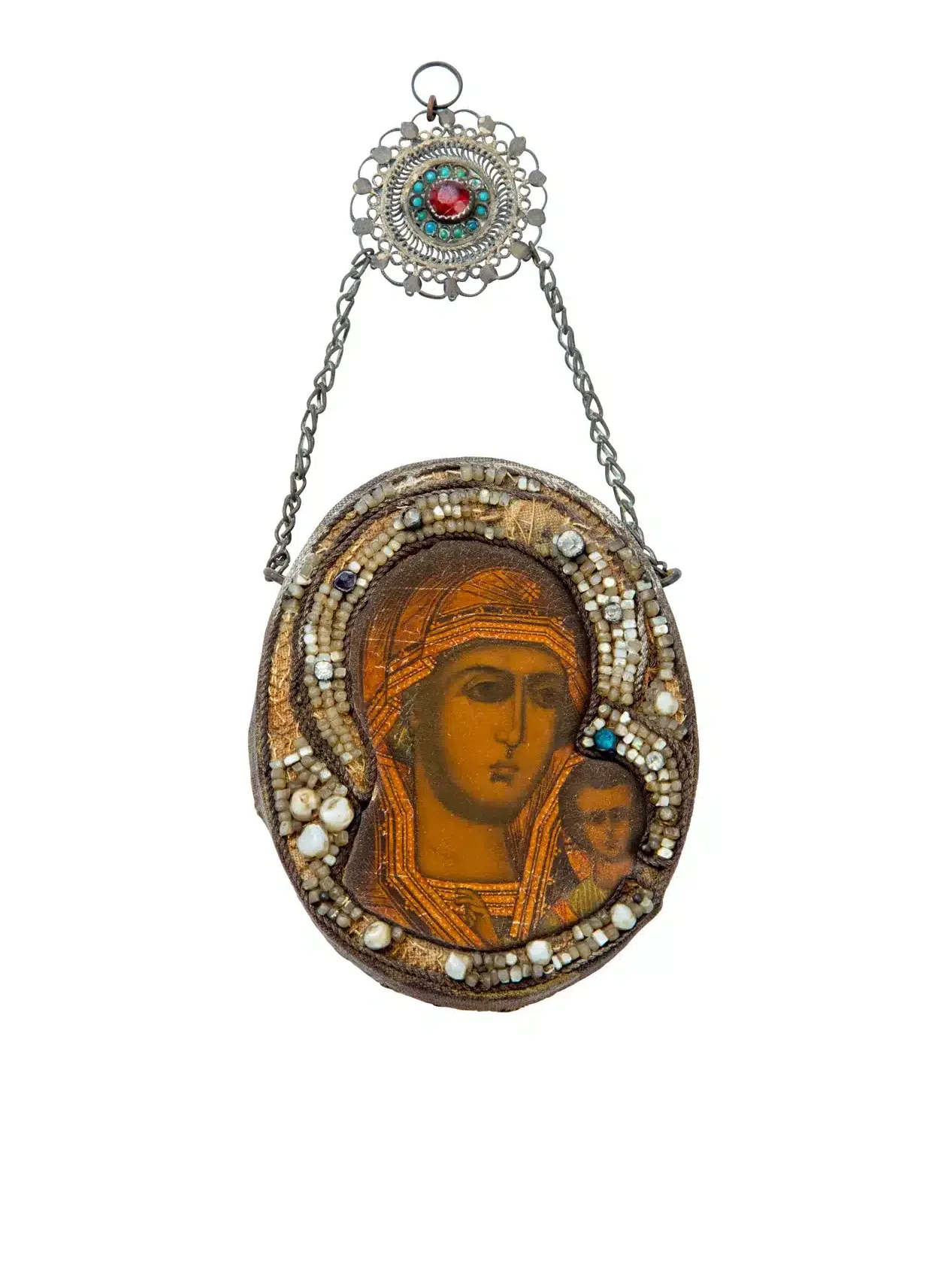Past Exhibitions
Sacred Presence: Virgin of Kazan
March 22, 2024—August 25, 2024
Sacred Presence: Virgin of Kazan
March 22, 2024—August 25, 2024
Curated by Dennis Sardella and Simon Morsink
Believed to be a Byzantine icon, the Virgin of Kazan was mysteriously rediscovered in 1579 in the hinterlands of the emergent Muscovite empire. Over the centuries, it came to be among the most beloved images in the Russian religious imagination. Guest curated by Dennis Sardella, the exhibit interweaves reflections on the image’s iconography, form, spiritual journey, allure, and beauty, as well as its cooption by political and religious actors up to our modern times.
The Kazan Mother of God (Kazanskaya Bogomater’ in Russian) is a highly revered icon, beloved of the people and hailed as a holy protectress. For centuries people prayed before the Kazan Mother of God for support and protection, couples were blessed with it before their marriages, and people hung it by their children’s cribs and in places of honor in their homes, turning to it whenever they faced trouble, disease, and misfortune. The Kazanskaya was also called upon for assistance in times of national peril. By the end of the nineteenth century there were thousands of icons of the Kazan Mother of God in Russian homes. The Icon Museum and Study Center is home to different examples of this iconography.



Sacred Presence: Virgin of Kazan tells the story of this image through the lens of a single seventeenth-century icon, which is one of the highlights in the Museum’s collection. This monumental icon, painted around 1650, dates to less than seventy-five years after the Kazanskaya cult of devotion was founded. The icon’s size, the iconographer’s warm color palette, and the imposing figure of the Mother of God, who is dressed in a purple mantle (maphorion), enables the panel to command the space around it, whereas the gentle melancholy of the Virgin’s gaze has an almost magnetic attraction.
Dennis J. Sardella, PhD has been a docent at the Museum for twelve years, where he leads gallery tours and introduces visitors to the world of Byzantine and Russian icons. He writes and speaks regularly to civic and church groups on the topics of religious icons and the role they play in Eastern Christian spirituality — at last count, nearly fifty presentations.
A professor of chemistry at Boston College for forty-five years, Sardella taught and researched the areas of spectroscopy and molecular structure. In 1990 he became the founding director of the Boston College Presidential Scholars Program, a university-wide co-curricular honors program, and directed it until 2010.